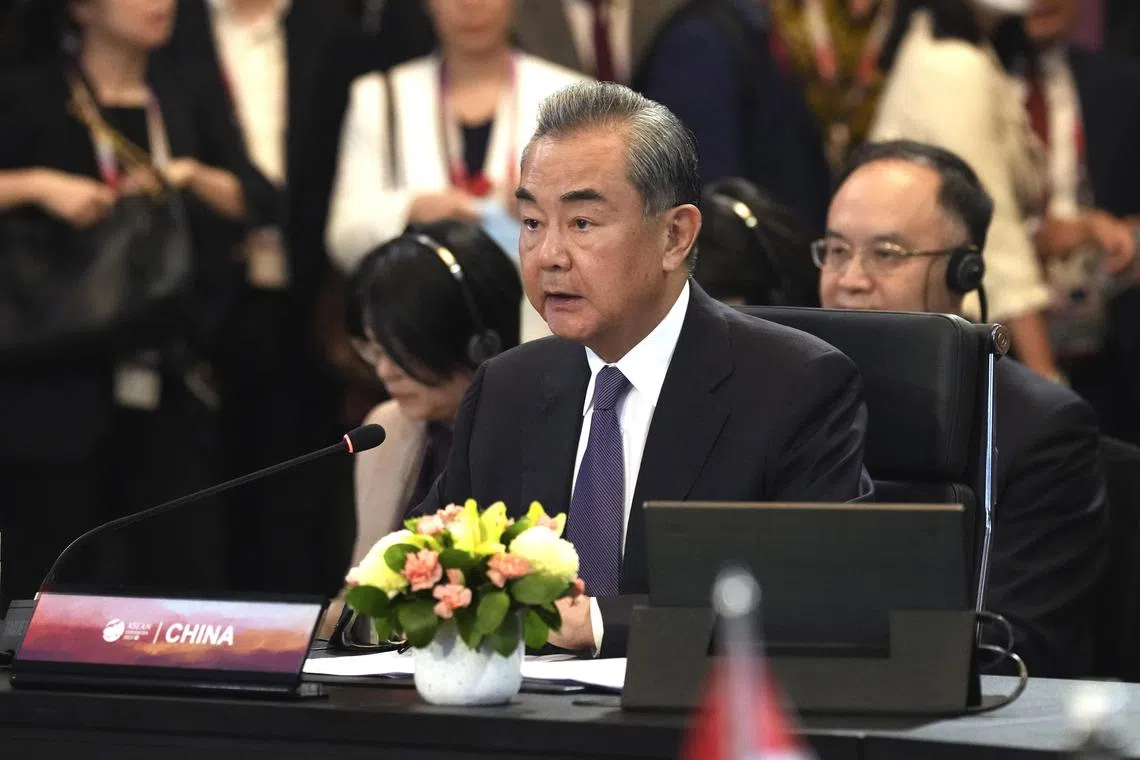Top diplomat says China, Asean pushing ahead with free trade area talks
Sign up now: Get ST's newsletters delivered to your inbox

Mr Wang Yi said China will continue to deepen the comprehensive strategic partnership with Asean.
PHOTO: EPA-EFE
Follow topic:
BEIJING - China and the Association of South-east Asian Nations (Asean) are pushing ahead with talks on a third version of a free trade agreement at an Asean summit in the Indonesian capital of Jakarta, China’s top diplomat Wang Yi said on Thursday.
Mr Wang, who was attending the forum with foreign ministers from several countries, said: “The two sides are actively promoting the negotiation of the free trade area version 3.0, and pushing for the full implementation of the RCEP.”
The Regional Comprehensive Economic Partnership (RCEP) is the world’s largest trade bloc backed by China. It took effect on Jan 1, 2022
The RCEP, seen as an alternative to the Comprehensive and Progressive Agreement for Trans-Pacific Partnership, covers nearly a third of the world’s population.
“We will continue to deepen the comprehensive strategic partnership with Asean,” Mr Wang said.
He said that would create “a more powerful strategic environment for both side’s development and revitalisation, as well as for the long-term peace and stability of the region”.
Earlier at a China customs press briefing, spokesman Lv Daliang said: “China and Asean are each other’s largest trading partners, with a solid foundation of cooperation and huge development potential. With the deepening of regional economic integration, the continuous expansion of cooperation fields, and the continuous smooth trade exchanges, bilateral trade is expected to continue to maintain a good trend.”
According to customs data on Thursday, the value of China-Asean two-way trade hit US$447.3 billion (S$594.7 billion) in January-June, down 1.5 per cent year-on-year. REUTERS

